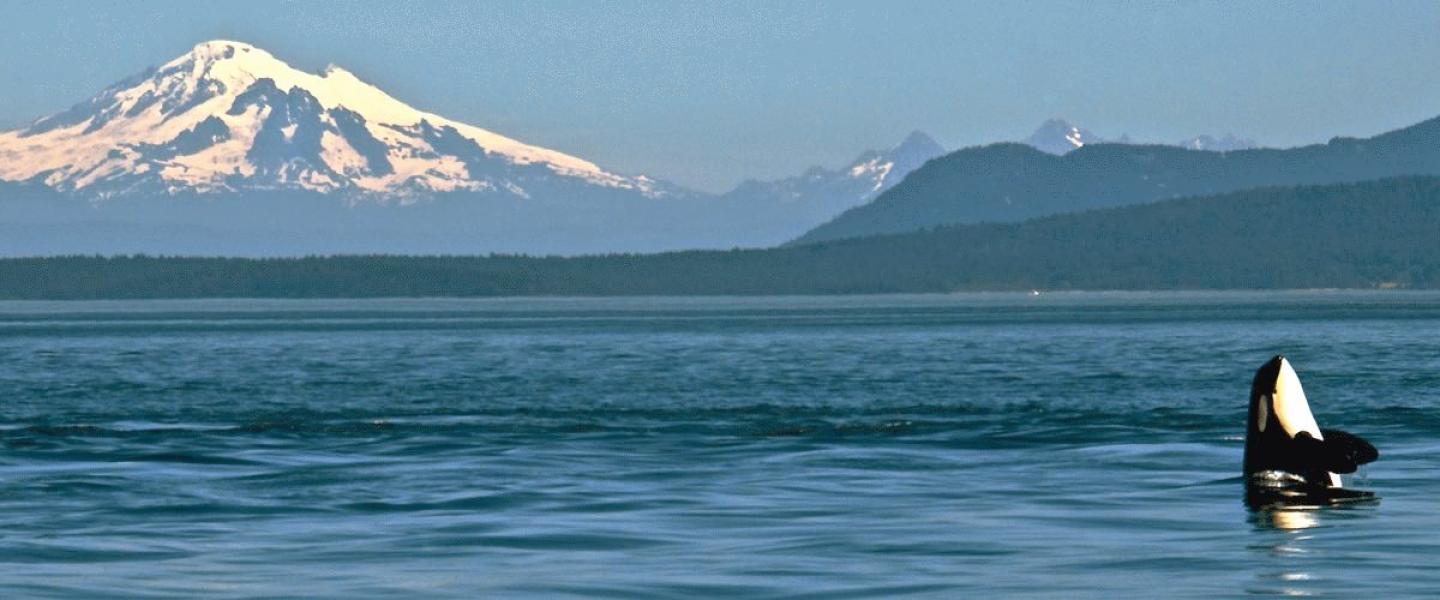
With the orcas being able to swim 30-35 mph and covering 100 miles in a day, it is easy to see how they can become "lost" from one day to the next. And with the Salish Sea being such a large body of water, how is it that the whale watching companies ever find what they are looking for? Since we do not use bait sites, spotting planes or boats, and none of the animals we see are animatronic, we must be using some other means of detection. Sonar? Nope. Fish finder? Only works if we are on top of them. Radio or satellite tags? Information is not instantaneous. Word of mouth? Bingo! That is right, the best trick we have for finding orcas or any other wildlife is to listen to the gossip.
All of the whale watching companies work cooperatively. It does not matter if they are from the U.S., Canada, mainland or islands, we all share information. It is part of the code out here on the water and the penalties, both real and social, can be harsh for a captain that does not play the game right. Since all of the captains know each other, they will call back and forth directly to confirm reports. The radio is also alive with all manners of maritime talk. This way each company can supply the best trip possible for their guests. It does no one any good to keep all of the intelligence to themselves, since it would be a lot of water to search if they were the last company standing.
International tourism also depends on the continued good health of the whale watching community's friendship. All of the boat companies are allowed to travel beyond the boundaries of their own country in search of wildlife and beautiful views. Guests do not need to carry passports, so long as they are on a licensed whale watching vessel. Out on the M/V Sea Lion and Kittiwake, it is not unusual for us to cruise into Canadian waters to see orcas, sea lions or birds and to talk about the sites that can be found in our sister country. And there is no better place to tell the Pig War story than while floating on the international border out in the middle of Haro Strait. A wandering pig was the linchpin in a dispute that finally decided the location of the border that we crossed today in our commune with wild orcas. Wildlife has no boundaries, so we do not either.
So, from all of us at San Juan Safaris, to all of you extralimital wanderers out there, thank you and we will...
See You In The Islands!
~Tristen, Naturalist